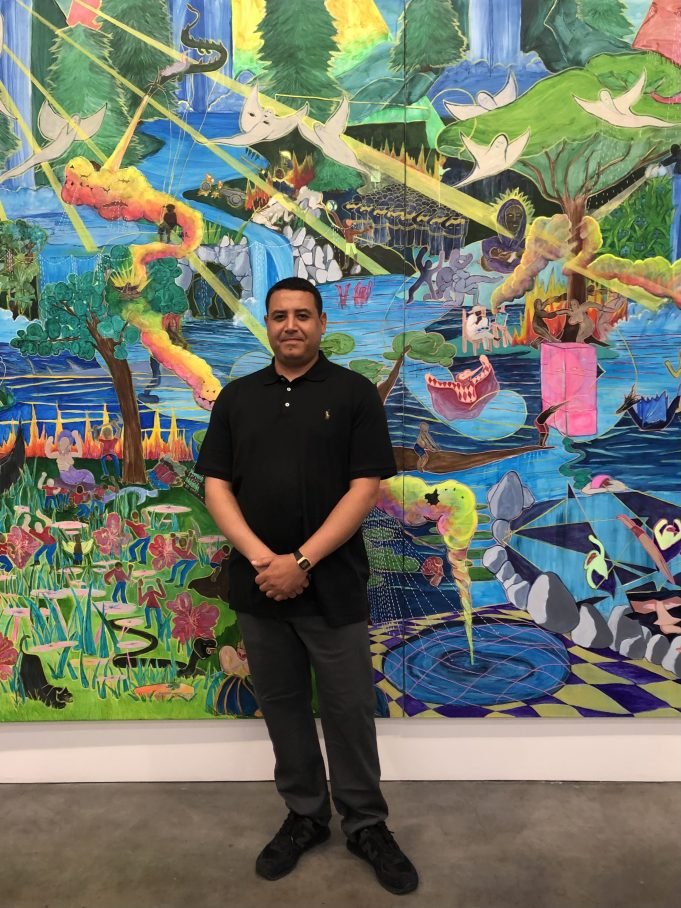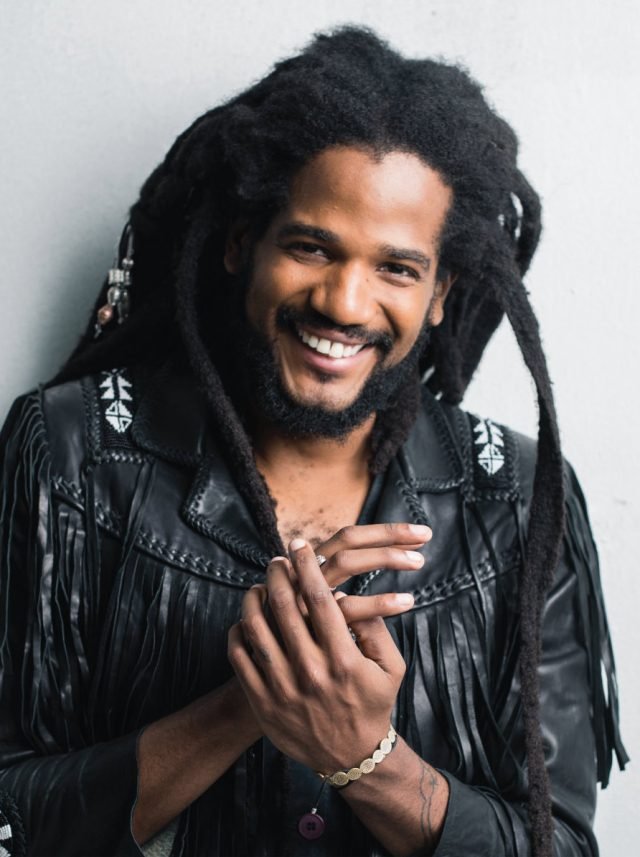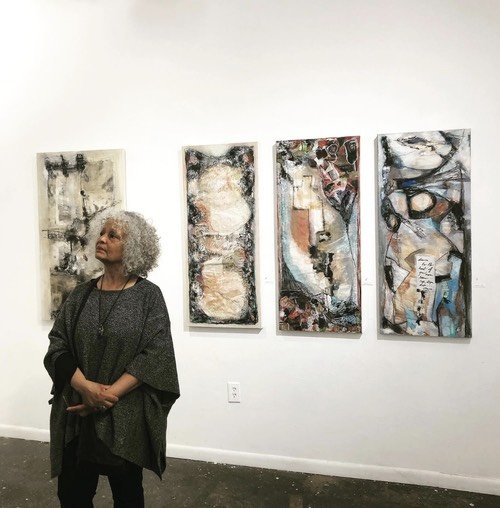Love and Haiti
Excerpted from Boulder Weekly, June 22, 2023, by Jezy J. Gray. View the full article here.
If mass media is your only window into the Republic of Haiti, mention of the island nation likely conjures a small constellation of sufferings. From natural disasters like the catastrophic earthquake of 2010 to the ongoing social and political turmoil set loose by the assassination of president Jovenel Moïse, the country has become twinned with adversity in the minds of many Americans at the mercy of our agony-prone 24/7 news ecosystem.
But when Paul Beaubrun reflects on his childhood in the capital city of Port-au-Prince, a centerpiece of so many harrowing headlines that have shaped popular conception of his ancestral home over these past decades, the current New York City resident doesn’t think about hardship. He hears music.
“Imagine waking up and your mom and dad are in the kitchen. Mom is cooking. Dad is in his underwear with a recorder in his hand, and mom is singing. That’s the way they created songs and shared ideas,” says the multi-instrumentalist whose parents founded Grammy Award-nominated Haitian supergroup Boukman Eksperyans in 1978, an influential roots music outfit Beaubrun now oversees as musical director on top of his solo career and work as a touring member of marquee indie-rock act The Arcade Fire. “That’s one of my earliest memories. There were always instruments around … music [was] almost like drinking water.”
That’s the Haiti you’ll see, and hear, during an upcoming benefit concert and gallery show at The Arts HUB in Lafayette on June 25. Featuring music by Beaubrun and visual works from Front Range artists Viktor El-Saieh and Ketty Devieux, the event is designed in part to offer a new register for the plight and pleasures of the often misunderstood island nation. Proceeds from the evening will benefit Locally Haiti, a Louisville-based 501(c)(3) nonprofit founded by a trio of Episcopal priests in 1989 that centers Haitian leadership in developing locally led and community-based programs in a place where camaraderie is often built through cultural expression.
“There’s a ton of music in Haiti. It’s a big part of the culture. It’s a big part of history. And it’s not always big concerts — it can just be people getting together to play acoustic instruments,” says Locally Haiti Executive Director Wynn Walent, a musician in his own right who met Beaubrun when the two performed together in New York nearly a decade ago. “It’s not altogether different from how we find real joy here, which is people being with people, being exposed to art and music and culture.”
You’ll see that joy in the vibrant and urgent brush strokes of El-Saieh, the Haitian-born Denverite who designed a four-panel series as a backdrop to Beaubrun’s performance at the upcoming fundraiser in Lafayette. The work depicts a celebratory scene of bodies in movement, with figures dancing joyously among open flames. “I want Paul to feel like he has Haiti behind him,” the artist and fellow Port-au-Prince native says of his first work of set design, offering a figurative counterpoint to the haunting abstract compositions of Devieux.
“Some of the best Haitian artists, the ones I’m inspired by the most, are just completely uninhibited by convention. A lot of these artists made masterpieces without any formal training,” says El-Saieh, counting the island’s old masters like Philomé Obin, André Pierre and Seymour Etienne Bottex among his influences. “I think that kind of fearlessness and lack of inhibition ties into the broader mythology of Haitian culture, the revolution and everything … a very broad scope of what is possible in the imagination.”
‘If a fire make it burn’
The fire in the word “revolution” may have smothered through casual use in contemporary U.S. parlance, but it still burns hot in Haiti. The country of more than 11 million was the site of the world’s first successful slave rebellion near the dawn of the 19th century, when the people threw off the yoke of their colonial rulers through a bloody 13-year gauntlet on what had up until that moment been known as the French-claimed island of Saint-Domingue. The first Black-led nation emerged from the bloodshed, changing history forever.
“The entire world order was turned on its head,” El-Saieh says. “Something so incredible happened in a situation where it was not supposed to happen. That’s such an inspiring idea. When you get into the mythology of it, the stories we tell and pass down over generations shape how we think about the world. … Revolution is not a one-time event where you snap your fingers and everything changes. It’s an ongoing thing. We’re still in the process of the Haitian Revolution.”
But as the grim parade of broadcast chyrons suggests, it’s not all dancing and liberation at the home of what is arguably the Western Hemisphere’s greatest victory of human freedom. On top of Haiti’s aforementioned natural and human-caused disasters, the country has a long history of violence, exploitation and abuse at the hands of foreign powers and local strongmen. From the nearly two-decade U.S. occupation of the island in the early beats of the 20th century — a deadly military occupation whipped up by the Wall Street interests of National City Bank of New York, an earlier mutation of the investment bank and financial services company known today as Citigroup — to the Tonton Macoute death squad of midcentury dictator François “Papa Doc” Duvalier, the sovereign nation has spent the lion’s share of its precious free years under someone else’s heel.
“Haiti has basically undergone every brutality and intervention you can imagine,” Walent says when asked why Boulder County residents should throw their energy behind the work of Locally Haiti during the upcoming benefit concert and art exhibition. “So for folks who are motivated by social justice, it’s a natural fit.”
‘Solidarity in its truest sense’
But Walent says there’s a more fundamental reason locals here on the Front Range should be moved to help empower people in a country where they will likely never step foot. The humanitarian-minded Lafayette resident — who first visited Haiti to pitch in after the infamous 2010 earthquake killed more than 200,000 people, displacing another 1.5 million while damaging critical infrastructure and touching off a devastating cholera outbreak — says it’s about seeing your own struggle bound up with someone else’s.
“I mean, this is our neighbor, a stone’s throw away from Miami, that is in true crisis,” he says. “I’m not saying that it should come from a place of guilt. There’s a famous quote that says something like, ‘If you’ve come here to help me, no thanks; but if you’ve come here because your liberation is wrapped up in mine, then let’s work together.’ … It’s solidarity in its truest sense.”
That’s the animating force behind Locally Haiti, where Walent has served as the organization’s stateside executive director since 2017. With a special focus on the country’s rural areas, the nonprofit has partnered for more than three decades with the community of Petit Trou de Nippes, located 95 miles west along the coast and a far cry in many respects from the commercial center where Beaubrun and El-Saieh were first zapped by the power of Haitian music and art. Walent says that with the help of its on-the-ground leaders and the local government’s ministry of health, the organization will soon break ground on a new hospital and health center for the region after a 2021 earthquake destroyed the only healthcare facility serving a population of roughly 40,000 people.
“When there is a vision that takes into account all the complicated cultural and country-specific realities in coming up with a solution, that solution is much more likely to be effective,” he says. “Every place is complex. And you can imagine how hard it would be for someone from [another country] to come to the U.S. having never spent time here, or not knowing the local context or norms, or what different problems there are to anticipate, and then being dropped into some city with a bunch of resources. They would come up with some plan that didn’t make sense, or wasn’t durable, or didn’t really fit the local needs. But for some reason that happens in Haiti all the time.”
Back in the Upper Manhattan neighborhood of Washington Heights, a week and change ahead of his Boulder County sojourn to help generate support for Walent’s organization and the island tethered to his heart from more than 1,500 miles away, Beaubrun reflects on a similar lack of context in framing the place he calls home and the people who make it special.
“On the news it’s always an earthquake, or this or that — they don’t show you the whole culture,” he says. “It’s a really beautiful place to be, and [that’s] because of the people. It’s not a poor country, the way people want to see it. To me, ‘poor’ is when you’re poor in spirit. Haiti is not poor in spirit. They are always laughing, smiling — joy, you know, singing. And at the end of the day, if you cannot have that, I don’t see the point.”
Locally Haiti: A Celebration of Art and Music feat. Paul Beaubrun. 5 p.m. Sunday, June 25, The Arts HUB, 420 Courtney Way, Lafayette. Tickets here.




